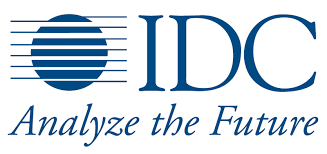
Middle East and Africa Healthcare Organizations Entering the Era of Digital Transformation
Ensuring high levels of security of data and systems, and guaranteeing business continuity are the top IT priorities among Middle East and Africa (MEA) decision makers in the healthcare industry for the next year or so, along with integrating siloed systems and advancing analytic capabilities, according to the recent research by International Data Corporation (IDC).
IDC Health Insights looked at the results of event polls conducted among healthcare IT executives attending a series of IDC CIO Summits held across the MEA region during 2015 and 2016. They survey respondents were executive-level representatives of healthcare organizations from Egypt, Saudi Arabia, United Arab Emirates, Turkey, Kenya, Nigeria, Morocco, and South Africa.
The survey results show that managing IT governance and regulatory compliance, meeting the growing expectations of IT users and patients, obtaining budgets for IT investments, and finding the workforce for emerging technologies are the ongoing challenges for healthcare CIOs in the region. As for managing IT security, the key challenges include budget constraints and staff-related issues that range from a lack of qualified personnel to poor adherence to security policies by employees.
Analytic technologies are clearly gaining traction among surveyed organizations: analytics (including business intelligence) was perceived as the most important in terms of supporting digital transformation, followed by mobile technologies. Among applications, analytic solutions represent the top investment priority for the next two years, including business intelligence tools and applications that are based on mobile platforms.
In terms of current adoption rates and near-term investment plans, however, mobility leads still leads the way: Over one third of respondents indicated that they have already introduced enterprise mobility, and another 55% plan to start using the technology within the next two years. Meeting the growing needs and expectations of patients is the main driver of enterprise mobility among surveyed organizations.
That said, IT security risks and hurdles associated with the management of multiple types of mobile devices and operating systems are slowing down mobility, and this is further aggravated by problems with interoperability and staff compliance with respective IT policies.
"Despite the methodological limitations of the study, especially with regard to the poor representativeness of the sample consisting of the attendees of IDC events, this survey provides some useful insights into the IT trends characteristic to MEA healthcare markets," says Nino Giguashvili, senior research analyst with IDC Health Insights, IDC CEMA. "Consistent with other research we perform in the Middle East region, mobility remains the fastest-emerging technology of the four pillars of the 3rd Platform. Private cloud and social media have made moderate progress over the last few years, while Big Data still lags behind, mainly due to uncertainties related to data validity and ROI.”
For more details on the survey results, see IDC Health Insights reports: The Shape of IT in MEA Healthcare: IDC’s CIO Summit Survey Highlights (IDC #CEMA40578016) and A Closer Look at Enterprise Mobility in MEA Healthcare: IDC’s CIO Summit Survey Highlights (IDC #CEMA41431117).
The first study (#CEMA40578016) highlights the results of the survey’s coverage of various IT-related issues, including:
• The deployment status of various technologies and solutions, including transformational technologies
• The key IT priorities and investment plans related to 3rd Platform technologies (cloud, mobile, social media, and Big Data)
• IT challenges and barriers to the adoption of various technologies
The second study (#CEMA41431117) takes a closer look at the state of enterprise mobility among the healthcare organizations represented by the event attendees. Specifically, the document covers:
• Deployment status of various enterprise mobility solutions among the surveyed organizations
• Short- and long-term investment plans with regard to enterprise mobility and state of maturity with regard to mobilizing enterprise applications
• Challenges associated with supporting mobility in healthcare


























